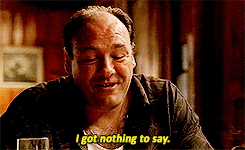Weight is not the issue here. He could be 80, 75, 70, that is not the point. The point is, if you're so good in the mountains, and he is (you can't drop Valverde, Uran and Yates if you're not, or drive the peloton for 10km on Col de la Loze), you can't be so powerful on the flat, so explosive on the hills, and so fast in the sprint. You just can't do all these things at the same time, no matter how much you weight. I never saw it in my life.
First: weight is a key issue. He could be 80, well, if he was 80, we wouldn't talk about him, because you wouldn't even have seen him on the Poggio close to Alaphilippe. He would have been dropped like a stone (or like a Bennett). I cannot overstress this enough: weight is a key factor.
Next, as Logic-is-your-friend said: he is a very good sprinter, but the main factor was his excellent positioning. And his excellent positioning is mainly driven by his excellent power values on the kilometer: It truly helps if he can push 6-700 watts in the kilometer before the the sprint and still sprint around 1300-1400 watts. Top sprinters will probably do 100-200 watts more, but WvA can push out his maximum after positioning himself. Most top sprinters lack their maximum power if they have had to do their positioning themselves. I believe he could have won more stages, but we actually saw 3 sprints, where in one of them he didn't have all of the competition, in another one he got lucky with positioning and timing (gaps have to open at the right time), and in Poitiers he tried hard with positioning and that cost him on timing and thus his sprint was not good enough to win. So we may have seen 2 times he was lucky, one he was close but not good enough, and who knows, he could as well have messed up 2-3 times more if he mixed in those sprints. We'll see today.
Col de la Loze is 22K.
First 15K, when WvA pulled, was 6.8% and everybody was still holding their breath.
WvA left the front with around 7K to go. At that time, WvA was done.
In the hardest 7K averaging 9%, he lost 6 minutes.
People here fail to understand the difference between doing your job and having to let go the moment the race really starts is much, much easier for several reasons:
- You are literally (like WvA on Col de Loze) doing 2/3rds of the workout the GC guys are doing;
- You are pulling, so you set the pace. Other riders won't suddenly take over when you go a bit slower for 50 meters, as long as the average pace is high enough. It is so much easier to set a given pace, than to answer attacks, or accelerate (when you know you should still be able to counter attacks).
- You can let go the moment you feel like you gave it all. That's much much easier mentally than being a GC guy who can never let go until the finish, or even feels bad, giving it a 100%, because he gets dropped. WvA never felt bad when he got dropped. Mentally he had a free ride.
In my view, WvA is extremely well-rounded. He has an excellent sprint (but not the very best), an excellent time trial (not the very best either), has massive FTP and thus when he is in-form and not too heavy, he can last long pulling a Jumbo train of rider. Last but not least, he really has tactical nous. Much more than many 'experienced' riders.
post script: about Sagan: people remember he won the Tour of California in 2015, winning a (short) ITT, winning sprints and finishing withing 45 seconds on the HC climb of Mt. Baldy? It proves that some guys (like Sagan, WvA) have more climbing pedigree than many think is possible, as long as they push themselves over the limit. Ofcourse they can't do that for a whole tour, but they can sometimes push themselves.







